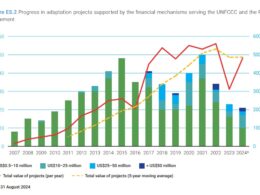A phased approach to decommissioning coal-fired power plants in the Asia-Pacific (APAC) region could significantly reduce carbon emissions while mitigating economic impacts, according to new research from MSCI. Authored by Manish Shakdwipee, Elchin Mammadov, and Guido Giese, the study was published in the Winter 2024 issue of the Journal of Impact and ESG Investing.
The study examines the potential of an orderly managed phaseout (MPO) of coal plants across 15 APAC markets. It finds that this strategy could reduce coal power-related emissions by 39% to 95% by 2050 compared to a business-as-usual scenario. Major economies such as China, Indonesia, and India are well-positioned to balance environmental and economic goals during the transition. In contrast, Hong Kong and Laos may face more abrupt and challenging transitions due to fewer available alternatives.
The publication follows COP29, where 25 countries and the European Union committed to national climate plans that exclude new unabated coal power. The Asia Investor Group on Climate Change also called for the early retirement of coal plants as part of broader efforts to cut emissions in the region.
“MPOs can play a critical role in the energy transition,” the authors noted. “Financing companies based on their plans for phasing out carbon-intensive assets may offer opportunities for investors seeking to support whole-economy decarbonisation.”
The study draws on case studies from European utilities, including Drax Group (UK), Vattenfall (Sweden), RWE (Germany), Uniper (Germany), and Engie (France). Drax successfully transitioned to meet UK government phaseout targets while maintaining profitability. In contrast, Vattenfall experienced asset impairments from a more abrupt coal exit. Prolonged phaseouts, as seen with RWE, Uniper, and Engie, posed regulatory risks and led to financial penalties.
The analysis concludes that coal plant operators in APAC can benefit from adopting MPO pathways by reducing exposure to regulatory risks and securing investment. The findings offer a roadmap for balancing decarbonisation and economic stability, making them a valuable resource for energy companies, investors, and policymakers navigating the region’s transition to cleaner energy systems.





















